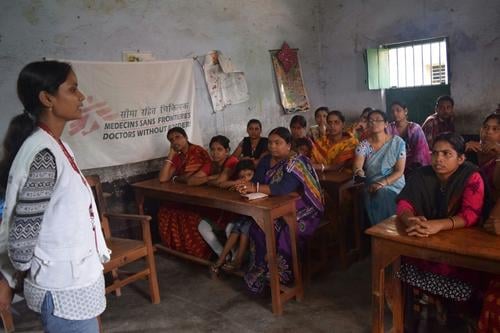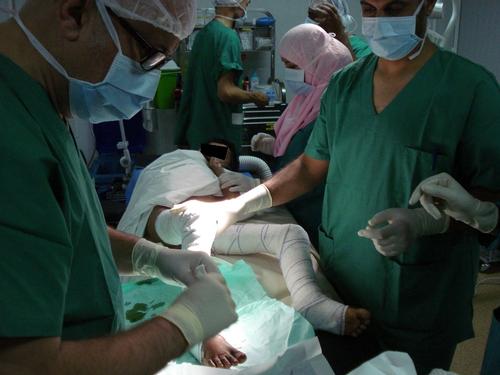Since 2015, Médecins Sans Frontières (MSF) has worked on antibiotic resistance in collaboration with the health authorities in West Bengal, India. As the world discusses this growing challenge during World Antibiotic Awareness Week (13 to 19 November), we shares some of our findings on the reasons behind this phenomenon and how this challenge can be addressed.

MSF has since 2015 worked on antibiotic resistance in collaboration with the Ministry of Health in West Bengal, India. As part of this project, MSF worked in the outpatient clinic of a district hospital and two primary health care centres, treating acute respiratory illness in children aged from six months to 12 years. A baseline audit of prescribing practices of district hospital doctors as well as health promotion activities for the local communities were conducted along with medical consultations.
MSF’s prescription audit collected and analysed prescriptions of outpatients who consulted doctors at the district hospital and two primary health care centres. The study revealed that antibiotics were heavily (and irrationally) prescribed in a large percentage of the cases. In some instances, there was no diagnosis mentioned in the prescription, but just a listing of medication. None of the prescriptions had any mention of the severity of the medical condition. Both sites included in the study received over hundreds of patients per day, with only one medical doctor overseeing the consultation.
“Without a doubt, this affected the quality of the consultation, given the limited time allotted to each patient,” says Dr Samsuddin Kham, Project Medical Referent, MSF India Patient expectations for specific types of drugs, such as antibiotics, are hard to manage when pressed for time, as observed by a doctor from the hospital.”
"Antibiotic resistance is a major concern linked to the overuse of antibiotics and this serious threat has the potential to affect anyone, of any age, in any country,” says Dr Debashish Halder, Chief Medical Officer of Health, Paschim Bardhaman, West Bengal.
“Doctors, pharmacists and all of us should come forward to overcome this threat."

“The need to monitor and address antibiotic resistance is urgent in resource poor settings in developing countries like India,” says Leena Menghaney, South Asia Head of MSF’s Access Campaign.
“The challenge is to restrict the over-the-counter sale of broad-spectrum antibiotics while ensuring poor and marginalised people have access to essential antibiotics for life threatening infections in a timely manner. At the same time, we cannot ignore the role that surveillance and diagnostics can play in strengthening the response to antibiotics resistance in the community.”
Drug-resistant infections are a looming challenge for MSF’s work around the world. MSF teams see them in war-wounded people in Jordan, in newborns in Niger, and in people in the organisation’s burns units in Iraq.
MSF doctors have documented the presence of highly resistant bacteria such as ESBL, CRE and MRSA, in several projects and have recently started using last-line antibiotics such as polymyxin to treat multi-drug resistant gram negative bacteria. Yet there is limited evidence of the drivers of antibiotic resistance as well as the prevalence of the problems, especially in countries like India, which is one of the largest consumers of antibiotics.
“Anecdotal evidence of irrational prescribing practices among doctors, unregulated over the counter access to medication, as well patients’ demand for antibiotics is found in plenty. However this requires the collection of scientific evidence and more research in these areas,” says Dr Amit Harshana, Deputy Medical Coordinator, MSF India.
Since 2015, MSF in collaboration with Ministry of Health, West Bengal has been working on developing tools, practices as well as knowledge that can contribute to policy level discussions on tackling antibiotic resistance.


